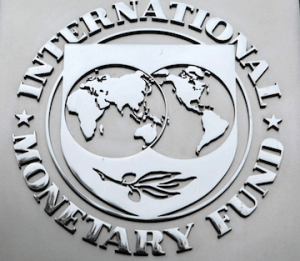IMF lauds Ghana for exiting FATF ‘grey list’
 The International Monetary Fund (IMF) has lauded Ghana for exiting the Financial Action Task Force’s (FATF’s) anti-money laundering (AML) and counter-terrorism financing (CTF) list.
The International Monetary Fund (IMF) has lauded Ghana for exiting the Financial Action Task Force’s (FATF’s) anti-money laundering (AML) and counter-terrorism financing (CTF) list.
Ghana was taken off the FATF’s “grey list” in June this year.
The country was added to the FATF’s “grey list” in February last year after the global watchdog found that the country’s AML/CTF regime lacked the needed strength to combat the illicit practices.
The IMF, in a statement issued after an Article IV consultation between its Executive Board and Ghana, commended the country for the improvements made in the AML/CFT framework that allowed the country to exit the global watchdog on Money Laundering (ML) and Terrorist Financing (TF) “grey list”.
The IMF also praised the Government for its proactive response to the COVID-19 pandemic, which it said helped to mitigate the economic impact.
It noted that the pandemic had a severe impact on Ghana’s economy, which resulted in slower growth, higher food prices, and increased poverty.
“The pandemic had a severe impact on economic activity. Growth slowed to 0.4 percent in 2020 from 6.5 percent in 2019, food prices spiked, and poverty increased. The fiscal deficit including energy and financial sector costs worsened to 15.2 percent of GDP, with a further 2.1 percent of GDP in additional spending financed through the accumulation of domestic arrears.
“Public debt rose to 79 percent of GDP. The current account deficit widened slightly to 3.1 percent of GDP as the decline in oil exports was partially offset by higher gold prices, resilient remittances, and weaker imports.”
It, however, noted that the Ghanaian Cedi remained stable against the US dollar, partly due to the Central Bank’s intervention, including the Ghana’s financial sector cleanup, which it said had made the sector more resilient.
“External and domestic financing conditions tightened considerably at the start of the pandemic, but have improved since, and Ghana successfully returned to international capital markets for a $3 billion Eurobond issuance in March 2021,” it added.
While encouraging government to limit monetary financing of deficit, it reminded it of the need to guard against erosion of external buffers and remain committed to a flexible exchange rate regime.
The IMF said while there were encouraging signs of an economic recovery, it remained uneven across sectors and, therefore, stressed the importance of entrenching prudent macroeconomic policies, ensuring debt sustainability, and pressing ahead with structural reforms to deliver a sustainable, inclusive, and green economic recovery.
It said even though an economic recovery was underway with growth expected to rebound, the outlook was subject to significant uncertainty, including; from new pandemic waves and risks associated with large financing needs and increasing public debt.
“Growth expected to rebound to 4.7 percent in 2021, supported by a strong cocoa season and mining and services activity, and inflation remaining within the Bank of Ghana target. The current account deficit is projected to improve to 2.2 percent of GDP, supported by a pickup in oil prices, and gross international reserves are expected to remain stable.
“The 2021 budget envisages a fiscal deficit of 13.9 percent of GDP in 2021, including energy and financial sector costs, and a gradual medium-term fiscal adjustment which would support a decline in public debt starting in 2024. However, this outlook is subject to significant uncertainty, including from new pandemic waves and risks associated with large financing needs and increasing public debt,” it explained.
It emphasised that the Government’s structural transformation and digitalisation agenda were, therefore, critical to support the recovery, adding that the structural transformation could be complemented by the ongoing energy sector review, diversification in tourism, and the digital transition, which had the potential to reduce corruption, boost tax revenues, and improve service delivery.
The IMF called for continued support in the capacity development efforts in those areas.
Source: GNA
